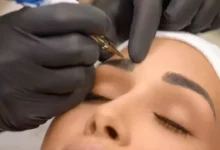Dental Hygiene Advice For Infants And Toddlers: A Comprehensive List
Did you know that a baby’s ability to keep its teeth and gums healthy depends on receiving dental care? Even before their first tooth erupts, it is essential to gently wash your baby’s gums with gauze or a soft cloth after feedings to avoid plaque formation and bacterial accumulation. When your baby’s first tooth comes out, which usually happens around six months of age, start cleaning their teeth twice a day using a baby-sized toothbrush with soft bristles and a dab of fluoride toothpaste. The growth of healthy teeth and gums is supported by this practice.

Furthermore, avoid giving your kid a bottle to sleep in since this might result in teeth rot in the youngster due to extended exposure to sugary liquids. Dr. Mandira Kamble, M.D.S. in Conservative Dentistry and Endodontics at Medicover Hospitals in Navi Mumbai, spoke about oral hygiene recommendations that are especially important for infants and toddlers in an interview with Jagran English.
Why is dental hygiene vital for infants and young children?
For the sake of their general health and wellbeing, infants and toddlers must maintain good oral hygiene. Early adoption of healthy dental practices promotes the development of adult teeth, in addition to preventing cavities and tooth decay. Early dental neglect may result in long-term difficulties, including poor alignment, difficulty speaking, and even systemic health concerns. Moreover, proper dental care helps establish discipline and self-control in infants and toddlers that may be carried into adulthood. You may establish lifelong good dental habits in children by exposing them to regular brushing, flossing, and dental examinations at a young age. Teaching parents about the significance of baby teeth as molar substitutes may also motivate them to put a high priority on their child’s dental health from an early age.
Parents, Use These Infallible Dental Advice for Infants and Toddlers:
Take into account the following advice to preserve your child’s dental health from early childhood until early childhood: After every meal, gently wipe the gums of infants 0–5 months old with gauze or a clean, wet towel. Don’t put a bottle in the baby’s mouth or let them eat whenever they want. It’s important to avoid letting a baby use a bottle to go to sleep at bedtime or during naps. Remember that saliva may spread tooth decay from parent to child, so avoid using your mouth to check the temperature of the bottle. Do not share cutlery, and do not put pacifiers or bottle nipples in your mouths to clean them. This procedure aids in stopping the bacteria that causes tooth decay from spreading.
It usually happens between 6 and 8 months of age when a baby gets its first tooth. Using a moist washcloth, keep wiping the baby’s gums and give them a gentle massage. Keep an eye out for any new brown or white patches on the child’s teeth or gums that might be signs of dental decay. If you detect anything out of the ordinary, get in touch with a dentist right away.
A kid should receive their first dental examination by the time they are one year old, preferably between the ages of 12 and 18 months. Parents should routinely check their child’s mouth for any strange brown or white patches and brush their teeth twice a day with plain water. If any such spots are seen, they should make an appointment with the dentist right away.
Did you know that not taking proper care of your teeth throughout early infancy may cause long-term difficulties, including bad alignment, difficulty speaking, and even systemic health issues?(Photo Source: Canva)
Around age two, parents should begin brushing their child’s teeth twice a day for five years, using a pea-sized quantity of fluoride toothpaste. Encourage toddlers to learn how to brush their teeth on their own, even if they may need help, until they have improved hand coordination.
Most kids can brush their teeth by themselves by the time they are 7 or 8 years old. Take care not to consume too much fluoride since this might discolor teeth. Consult a dentist right away if your kid has any dental health problems during this time.
Lastly, Dr. Mandira stressed how important it is to take care of your baby’s dental health from a young age. Use a toothbrush with soft bristles made especially for babies as teeth start to erupt. Don’t place a bottle near your baby’s bed; this can expose their teeth to sweets from milk or juice all night long, which may cause tooth rot. Recall that developing strong oral hygiene habits early in childhood lays the groundwork for lifetime dental health.







